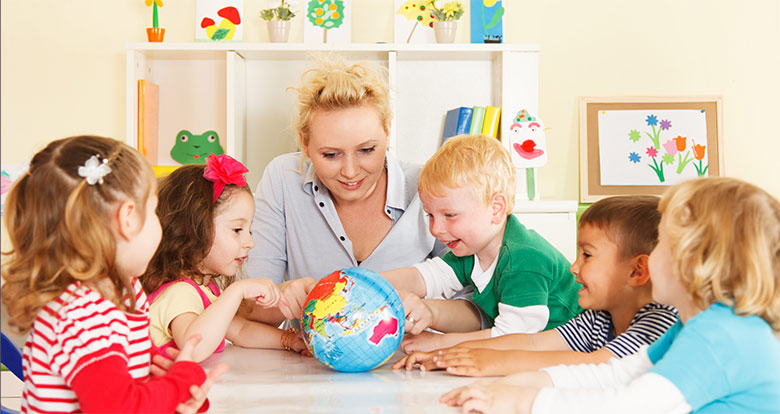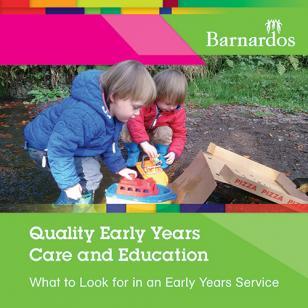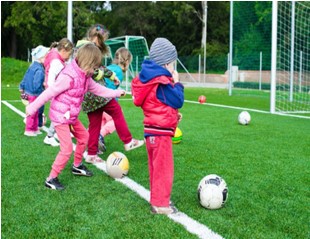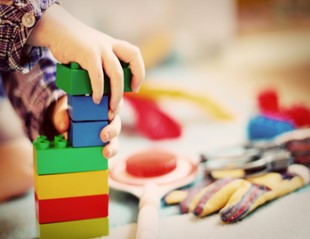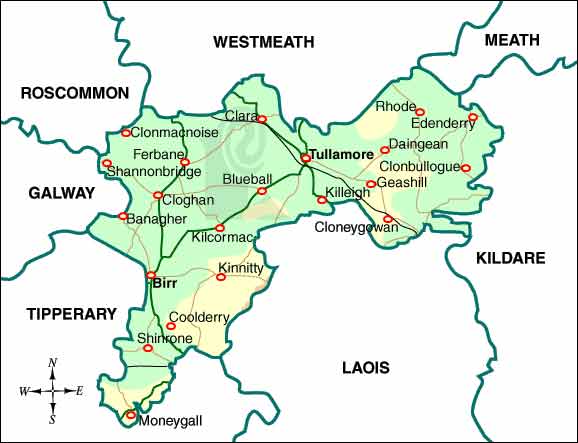What is a Parent & Toddler Group?
A Parent & Toddler group is usually a group of adults and children, who get together to provide activities for children under the age of 5. They are usually run by parents so that parents, grandparents, guardians, childminders and carers can attend, together with their children for a small charge, which helps pay for the toys, insurance, craft activities and refreshments.
How old can my child be, before they can attend?
You can attend a Parent & Toddler Group with a new-born baby, a baby who has just learnt to sit, a toddler and a pre-schooler, or a combination of the above. The earlier you attend, the more likely you are to establish long-term friendships with other parents, you are able to share the expertise of other parents - if you feel you are on your own, struggling with your baby's demands or feel isolated, or just want to make friends who are interested and enthusiastic about your baby too - then Parent & Toddler Group is perhaps the place to find them.
What does it offer my child?
This really depends on what the group actually offers within the sessions, but it is sure to cover a range of the activities for pre-school age children, and provide some of the firm foundations that under three's need.
Local groups can offer:
- Group activities when the children all sit together - great social skills!
- Opportunity for children to run around, use large motor skills and try out a variety of ride on toys.
- Crafts - painting, college, chalk, colouring, sticking and more, sometimes related to themes, so you may actually get a card on Mothers Day!
- Opportunity for messy play - playdough, sand, exploring soil or water.
- Opportunity to recreate roles, dressing up or playing in the home corner.
- Stories and singing as a group, or even music and movement sessions.
- New experiences with special visitors - firemen, librarian, postman, gardai etc.
- Table top activities - puzzles, simple games, books to share.
- A carpeted area for the babies with activity frames, cushions and baby toys.
- Friendship and support to carers, and parents.
Benefits to Children
- Children get to interact with other children, while their parents / carers are close by: this helps to build the child’s confidence and social skills.
- Parent & Toddler Groups are a great stepping stone in preparing children for playgroup / pre-school.
- They provide children with opportunities which may not be available at home such as messy play, creative play, songs and stories
Benefits to Parents
- Great way to meet other parents in the locality, to share experiences and glean support from others in similar circumstances.
- Social contact with other adults as Parent & Toddler Groups may be the only social contact for some parents / carers so these meetings help reduce and prevent isolation.
- Parent & Toddler Groups can be a great social network and can be especially helpful to parents who do not have family support close by.
Guidelines for setting up a Parent & Toddler Group
- Get support from wherever possible e.g. Offaly County Childcare Committee Ltd, HSE, IPPA etc.
- Form a committee and elect officers i.e. Chairperson, Treasurers, Secretary, Health & Safety Person and perhaps PRO.
- Decide on a suitable premises or location for the Parent & Toddler Group meeting and ask the local Fire Officer to check the building to advice on fire drills and fire safety issues.
- Organise insurance (IPPA operates a group insurance scheme for Parent & Toddler Groups).
- Open a Bank Account in the name of the group with three signatories (usually the two Treasurers and the Chairperson).
- Decide on and set down the operating rules of the Group which may act as the Group constitution.
- Decide on a draft action plan for three months (This can be expanded to an Annual Plan when the group is well established).
- Apply for funding
How are Parent & Toddler Groups run?
- Most Groups are run by a committee comprising of a Chairperson, Secretary, 2 Treasurers and PRO.
- All other members of the Group also form part of the Committee.
- Most groups will have a planning meeting before starting the Group. At this meeting the group will decide on their aims and objectives, activities for the near future and a daily routine for the Group
- Many members of the group will have hidden talents - some will be great organisers, some will be ideas people, some will be arty, some will love reading aloud, some will be able to sing and play musical instruments. Harness the talent within the group to ensure a communal effort.
Toys & Equipment
General
- Suitable chairs and tables for adults
- Tea-making equipment
- Cups and beakers
- Nappy-changing facilities in a separate area from the children.
- A secure gate / barrier to prevent the children leaving the building or accessing areas which could present a danger e.g. kitchen, stairs etc
For Babies
- A safe area with soft flooring
- Soft toys
- Rattles
- Coloured bricks
- Ball pool
- Activity centres
For Crawlers
- If space permits cordon off a separate area with roll along toys, stacking toys, coloured bricks, cars, dolls, cloth books etc
For Toddlers
- Dolls, teddies, prams and push chairs
- Sit and ride toys
- Garage and cars
- Jigsaws
- Building blocks
- Dress up clothes
- A toy kitchen
- Coloured hard back books
- Play dough
- Paint
- Arts & Crafts materials
- If space permits, sand and water play provides good development opportunities for toddlers but needs to be supervised closely
Day to Day Running of Group
- Block book premises
- Organise key for unlocking & lock up at end of session
- Set up premises
- Welcome parents / carers and get them to sign in
- Register new parents and record them in the register and accounts book
- Organise drinks and snacks in a separate area
- Supervise play activities
- Welcome guest speakers
- Advertise service
- Keep records of all the Group Activities, especially the financial transactions
Tip: A job bag – each job goes into a hat and as the adults register they pull out their task for the day – great for the task shirkers in a group!!!!!
For further information and support on setting up a Parent and Toddler Group in your area contact Sheena on 057 9135878 or email This email address is being protected from spambots. You need JavaScript enabled to view it.
To find a Parent & Toddler Group CLICK HERE
Insurance for Parent & Toddler Groups
Early Childhood Ireland run a Group Insurance Scheme for Parent and Toddler groups. For details, please contact Early Childhood Ireland on 01 405 7100 or log onto www.earlychildhoodireland.ie

